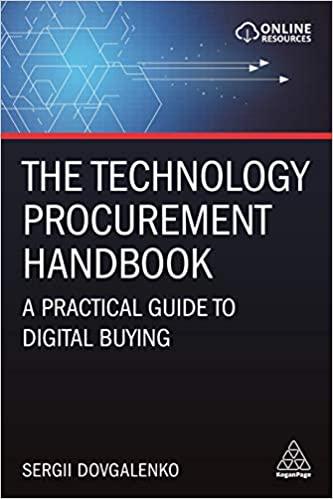Question
When you make a large purchase (say, a house or a car) you typically borrow money from lenders (e.g. banks, mortgage brokers, credit unions, etc.)
When you make a large purchase (say, a house or a car) you typically borrow money from lenders (e.g. banks, mortgage brokers, credit unions, etc.) who frequently quote the interest you are going to pay in two ways. First, they quote an annual 'interest rate' - the number they widely advertise (but which is often inaccurate), and then a higher (sometimes, much higher) "APR"- which they don't advertise but HAVE to disclose in the fine print because of regulation. The latter number (the "APR") includes all upfront costs generated by the "loan origination" process and reflects your true annualized costs (hence its name "Annual Percentage Rate").
In this discussion, please go online and find two lenders with the largest difference between their APRs (BankRate.com will be useful here) in your area. Make the following assumptions:
1. The value of the house, the down payment, and how much you will borrow.
2. Assume you are taking 30-year fixed mortgage - they are the simplest to deal with.
Calculate the monthly mortgage payments using APRs for both the highest and lowest interest rate lender (or use BankRate's numbers). Calculate the difference in these monthly payments.
Most important: assume that you can invest the DIFFERENCE in monthly payments in the stock market at 0.5% monthly rate of return. How much money would you accumulate by the end of the mortgage (in 360 months) had you invested with the lowest APR lender instead of the highest? What is this value closest to in consumer products? (e.g. iPhone, one-week Hawaii vacation, etc. - be creative).
Step by Step Solution
There are 3 Steps involved in it
Step: 1

Get Instant Access to Expert-Tailored Solutions
See step-by-step solutions with expert insights and AI powered tools for academic success
Step: 2

Step: 3

Ace Your Homework with AI
Get the answers you need in no time with our AI-driven, step-by-step assistance
Get Started


